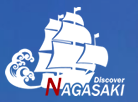What is an Information Portal?
An information portal serves as a centralized digital platform designed to aggregate, organize, and deliver critical online resources to users. These platforms streamline data access by consolidating disparate sources into a single, cohesive interface. Whether for businesses, governments, or educational institutions, an information portal acts as a hub for knowledge sharing, decision-making, and operational efficiency.
Key Features of Modern Information Portals
Modern information portals emphasize a user-friendly interface to enhance accessibility. Key features include personalized dashboards, real-time data visualization, and secure data access controls. Integration with external online resources ensures up-to-date information, while robust search functionalities make navigation intuitive. These elements collectively transform a digital platform into a powerful tool for stakeholders.
- Personalized dashboards tailored to user roles
- Advanced analytics for actionable data access
- Seamless integration with external online resources
Why Information Portals Are Essential for Businesses
Businesses rely on information portals to unify operations, reduce redundancy, and improve collaboration. By centralizing data access through a digital platform, teams can retrieve critical insights faster, enabling agile decision-making. Additionally, these portals foster transparency by ensuring all departments share consistent online resources and metrics.
How Information Portals Enhance User Experience
A user-friendly interface is the cornerstone of effective information portals. Users benefit from simplified workflows, role-based permissions, and intuitive navigation. For instance, employees can access training materials, project updates, and company policies through a single digital platform, reducing time spent searching for scattered online resources.
Common Use Cases for Information Portals
Information portals cater to diverse needs, from internal business operations to public services. Common applications include customer support hubs, employee intranets, and government service portals. These digital platforms provide structured data access and curated online resources, ensuring users find what they need efficiently.
- Customer support portals offering FAQs and troubleshooting guides
- Employee resource centers for HR and IT assistance
- Public service portals for civic engagement and policy updates
Choosing the Right Information Portal for Your Needs
Selecting an information portal requires evaluating scalability, security, and ease of use. Prioritize platforms with a user-friendly interface and flexible data access management. Ensure the digital platform integrates seamlessly with your existing tools and supports future growth by connecting to essential online resources.
Trends Shaping the Future of Information Portals
Emerging trends like AI-driven personalization and mobile-first design are redefining information portals. These platforms now offer predictive analytics, voice-enabled searches, and real-time updates. As data access demands grow, expect digital platforms to evolve with enhanced security measures and deeper integration with global online resources.
Security and Privacy Considerations
Protecting data access is paramount for information portals. Implement encryption, multi-factor authentication, and role-based access controls to safeguard sensitive information. Regular audits and compliance with regulations ensure that the digital platform remains secure while maintaining user trust in its online resources.
Integrating Information Portals with Existing Systems
Successful integration hinges on compatibility with current infrastructure. A digital platform must connect with CRM, ERP, and other enterprise systems to consolidate data access. APIs and middleware facilitate this process, allowing seamless flow of online resources and minimizing disruption during implementation.
Best Practices for Maintaining an Information Portal
Routine maintenance ensures an information portal remains functional and relevant. Update content regularly, train users on the user-friendly interface, and monitor performance metrics. Collaborate with stakeholders to align the digital platform with evolving data access needs and online resources requirements.
The Role of AI in Advancing Information Portals
AI transforms information portals by automating tasks, predicting user needs, and improving data access efficiency. Machine learning algorithms analyze usage patterns to personalize content delivery, while chatbots enhance interaction through a user-friendly interface. This synergy between AI and digital platforms elevates the value of online resources for users.
Case Studies: Real-World Applications of Information Portals
Companies like TechCorp leveraged information portals to unify global teams, cutting response times by 40%. Public agencies adopted similar digital platforms to streamline citizen services. For detailed insights, explore heidi’s bier haus slot machine.
Frequently Asked Questions About Information Portals
Q: How do information portals differ from traditional websites? A: Unlike static websites, information portals offer dynamic data access and interactive user-friendly interfaces, often integrating multiple online resources in one place. Q: Can small businesses benefit from information portals? A: Absolutely. A scalable digital platform can adapt to the needs of organizations of all sizes, providing structured data access and improved operational efficiency.
